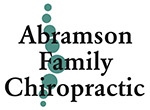Excess Weight Increases Low Back Pain Risk in Youth Population
A meta-analysis that included 34 studies concluded that obesity is a risk factor for low back pain in children and adolescents. In particular, the research team found that obese kids and teens have a 27% elevated risk for low back pain. International Journal of Obesity (London), January 2024
Short Sleepers at Risk for Type 2 Diabetes
Following an analysis of data concerning nearly 250,000 adults, researchers report that consistently sleeping only five hours a night is associated with a 16% elevated risk for type 2 diabetes in the next decade. For individuals averaging three to four hours a night of sleep, the risk jumps to 41%. JAMA Network Open, March 2024
What Are “Naked” Carbs?
Individuals looking to make healthier food choices may be confused by the term naked carbs. In essence, naked carbs are added sugars found in sugary drinks and pre-packaged snacks that cause a rapid spike in blood sugar levels when consumed. On the other hand, dressed carbs are those found in whole foods accompanied by vitamins, minerals, and dietary fiber that are absorbed more slowly into the body without a corresponding spike in blood sugar levels. The Conversation, March 2024
Exercise Helps Concussion Recovery
For children and teens who sustain a mild-traumatic brain injury, new research suggests that engaging in at least 40 minutes of total moderate-to-vigorous exercise a day in the first two weeks post-injury can result in a greater reduction in post-concussion symptoms than less or no exercise at all. JAMA Network Open, February 2024
Pets Help Boost Mental Health
A survey conducted jointly by the American Psychiatric Association and American Veterinary Medical Association found that 84% of pet owners in the United States believe that pets positively affect their mental health. The team that interpreted the survey results believes this may be due to several factors including stress reduction, companionship, comfort, and increased physical activity. American Psychiatric Association & American Veterinary Medical Association, March 2024
Personality and Cancer Screenings
Using data from the German National Cohort study, which included nearly 133,000 middle-aged adults, researchers found that individuals with certain personality traits—particularly high levels of extraversion, neuroticism, and conscientiousness—are more likely to attend cancer screenings. The findings suggest that efforts to increase cancer screening should take personality traits into account. Preventative Medicine Reports, March 2024
“Great things are done by a series of small things brought together.” ~ Vincent Van Gogh
This information should not be substituted for medical or chiropractic advice. Any and all health care concerns, decisions, and actions must be done through the advice and counsel of a health care professional who is familiar with your updated medical history.
